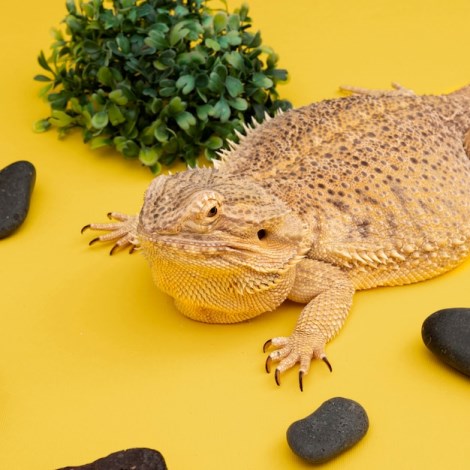Amazing Facts About Iguanas

Did you know that iguanas are excellent climbers?
Iguanas are cold-blooded reptiles that rely on external sources of heat to warm up.
Iguanas have long tails that they use for balance when climbing trees.
Male iguanas are usually larger than females.
Iguanas are herbivores and mainly eat plants and leaves.
The skin of iguanas is covered in scales that help protect them from predators.
Iguanas have a third eye, known as a parietal eye, on the top of their head.
Iguanas can hold their breath underwater for up to 30 minutes.
Some species of iguanas can change color, depending on their mood or the temperature.
Iguanas have sharp teeth that they use for tearing apart their food.
Iguanas can live up to 20 years in the wild.
Iguanas are native to Central and South America, as well as the Caribbean.
Female iguanas lay eggs in nests they dig in the ground.
Iguanas are excellent swimmers and are often seen in water bodies such as rivers and ponds.
The average size of an iguana can range from 4 to 6 feet long, including the tail.
Iguanas have a distinct crest of spines along their back.
Iguanas are diurnal animals, meaning they are most active during the day.
The largest species of iguana is the green iguana, which can grow up to 6 feet long.
Male iguanas have larger dewlaps, which are the loose skin under their chin, than females.
Iguanas have excellent eyesight and can detect movement from a far distance.
Amazing Facts About Iguanas part 2
Baby iguanas are called hatchlings.
Iguanas are often kept as pets, but they require specialized care and a suitable environment.
Some iguanas can make a hissing sound when they feel threatened.
Iguanas have a unique ability to detach their tails when caught by a predator as a defense mechanism.
Iguanas are social animals and can be seen basking together in groups.
Iguanas have sharp claws that they use for gripping branches and climbing.
The name iguana comes from the indigenous Taíno language spoken in the Caribbean.
Iguanas have a strong sense of smell and use their tongue to collect scent particles.
Iguanas are known for their strong jaws, which help them eat tough vegetation.
Iguanas have specialized eyes that allow them to detect ultraviolet light.
Iguanas can regenerate damaged or lost tails over time.
Some species of iguanas, such as the marine iguana, can dive and swim underwater to search for food.
Iguanas are important for the ecosystem as seed dispersers, as they consume and excrete seeds.
Iguanas have a highly efficient digestive system that allows them to extract maximum nutrients from their food.
The skin color of iguanas can vary depending on their surroundings and temperature.
Iguanas have a strong muscular jaw that helps them crush and chew tough vegetation.
Iguanas are often seen sunbathing to absorb warmth from the sun.
Iguanas have a keen sense of hearing and can detect sounds over long distances.
Iguanas communicate with each other through body movements and head bobs.
Iguanas have a long lifespan in captivity, with some living up to 20-25 years or even more.
Iguanas are excellent jumpers and can leap several feet to escape from predators.
Iguanas have a serrated crest along their back, which helps to intimidate potential threats.
Iguanas are highly adaptable creatures that can thrive in various habitats, including forests, deserts, and coastal regions.
Iguanas have a unique gland in their nasal passages that helps them eliminate excess salt from their bodies.
Iguanas are known for their striking appearance, with vibrant colors and patterns that vary among different species.

